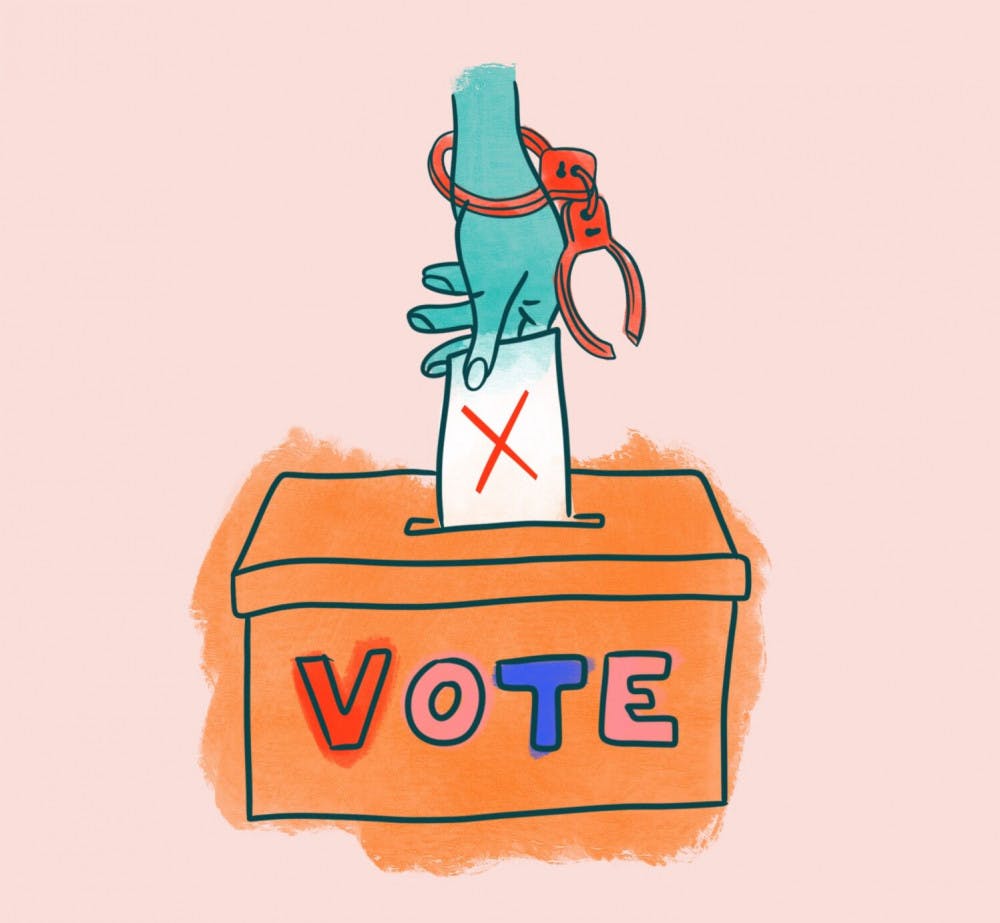
The Supreme Court allowed Florida to bar people with felony convictions from voting unless they have paid their court fines on July 16. Without the money to pay these fines, which can range from hundreds to sometimes thousands of dollars, some ex-felons will be prohibited from voting.
Chanae Jackson said this law is basically a version of the poll tax.
The self-employed business owner said this affects four out of her six brothers as well as her father. She said she felt the system had failed them, giving them no other option but to take part in criminal activity. She said they all had drug charges at some point, and have struggled with many things after serving their time, including participating in voting.
“There's a great deal of people who can’t participate in elections to vote for the people that are willing to make change,” Jackson said. “We get stuck with the same people that are willing to go along with the status-quo and keep things the way that they are.”
The typical first- or second-degree felony case generates $5,214 in fines and fees.
Jackson said she believes the right to vote is something everyone deserves, and that someone's criminal history shouldn't affect that. She said her brothers and father are all contributing members of society, working everyday, paying taxes, and abiding by the law.
“I mean it’s very frustrating because they can’t get representation,” Jackson said. “Even when we look at Gainesville as a whole, and you’re looking at black people who are 3.9 times more likely to be arrested, this system has been designed to not give black people representation.”
In November 2018, Florida voters passed Amendment 4, which restored voting rights of some felons “upon completion of all terms” of their sentences, “including parole or probation.” It made 1.4 million ex-felons eligible to vote the following January and excluded those convicted for murder and sexual offenses.
However in 2019, the legislature enacted SB-7066, a law that included the payment of court fines, fees, and restitution before ex-felons could vote. Civil rights and advocacy groups filed lawsuits against the state of Florida in response.
Judge Robert L. Hinkle of the Federal District Court in Tallahassee ruled that the state law was unconstitutional and entered a permanent injunction, which is a court order to refrain from the decision. The state of Florida appealed that decision to the 11th Circuit Court of Appeals which put the ruling on hold, or a “stay,” which is something courts put in place while they decide on a case.
If the Court upholds SB-7066, nearly one million Florida residents would be unable to vote because they have unpaid legal financial obligations.
Robert Swain, a senior assistant county attorney with Alachua County, said that Florida had generally stricter laws on felons voting compared to other states up until the adoption of Amendment 4.
“It’s not going to change the current voting trends just because these people don’t have the vote of the present,” Swain said. “If they are given the vote, and they exercise it, then you will see what happens after that, but one of the things that was brought up in the trial was that no one knows how these people will vote.”
Florida is one of 11 states where people who commit felony either: lose their voting rights indefinitely for some crimes; are required to obtain a governor’s pardon in order for voting rights to be restored; face an additional waiting period after completion of sentence (including parole and probation) or require additional action before voting rights can be restored.
Jeff Brandes, a Florida Senator from District 24, said he supports Amendment 4 because it was meaningfully better for felons to get the right to vote.
Brandes said before Amendment 4 was passed, people who committed a felony were not allowed to vote at all unless granted clemency. He said this was an exceptionally inefficient mechanism to restore felons' right to vote, so he believes Amendment 4 is now at least a pathway to allow felons to vote.
“We tried to create multiple pathways for felons who couldn’t pay their fines and fees, including going the clemency route, which I think is important,” Brandes said. “I think at the end of the day, the law that we passed, when you hold it up to the light of the constitutional amendment, it fully complies with what the voter voted on.”
Tequila McKnight, the 43-year-old owner of TNT Dynamite cleaning service company in Alachua County, said if she could vote, she would.
She was arrested and charged with aggravated assault and battery in 2010 and spent four years in prison. Since leaving prison, she has participated in helping Amendment 4 pass by going door to door looking for signatures to add to petitions in favor of the amendment.
Someone’s inability to pay fees should not be a reason they can’t participate in elections, she said.
“I really, really want to vote,” Mcknight said. “I’m just confused and I’m upset because Amendment 4 passed, and not being able to vote after that is just a really low blow. Everyone should have that right.”
On Aug. 3, a coalition of 20 attorneys general filed an amicus brief arguing that Florida unfairly limits voting rights by requiring payment of all court-ordered fees. It also says the law disproportionately affects African Americans, Latinx community and low-income returning citizens. The plaintiffs are seeking declaratory and injunctive relief to restore the vote to former felons.
Correction: This article has been updated to omit the account of one source who gave The Alligator incorrect information regarding her identity.

Anna Wilder is a second-year journalism major and the criminal justice reporter. She's from Melbourne, Florida, and she enjoys being outdoors or playing the viola when she's not writing.





